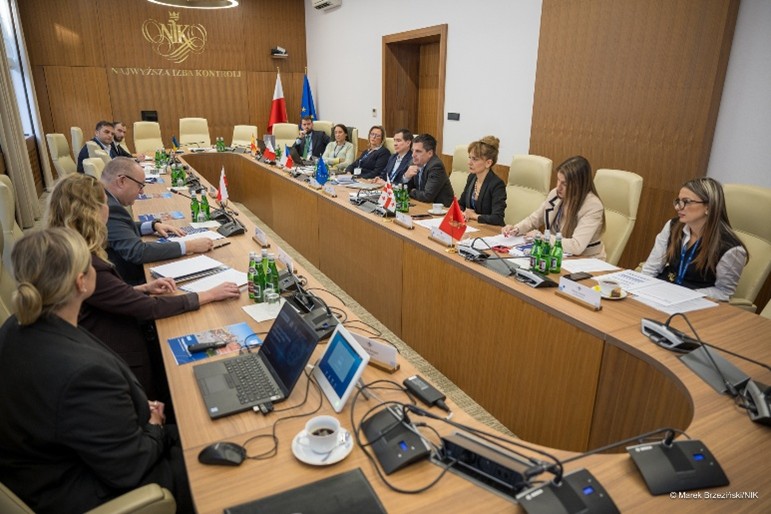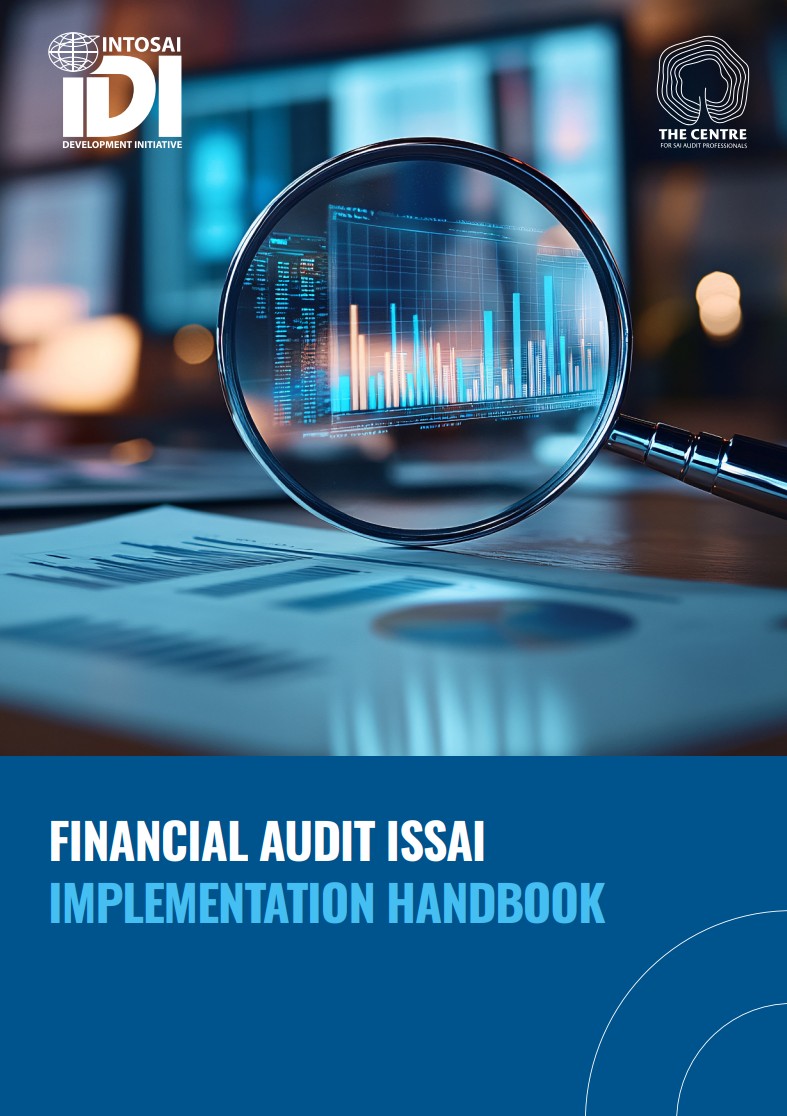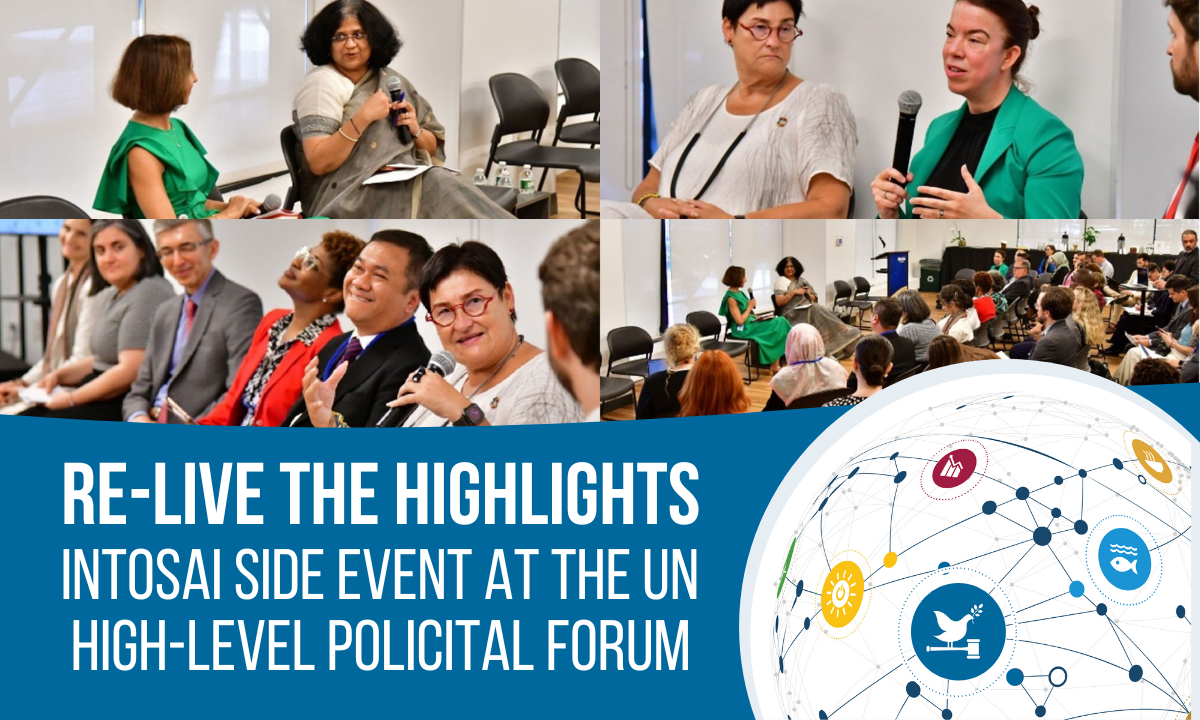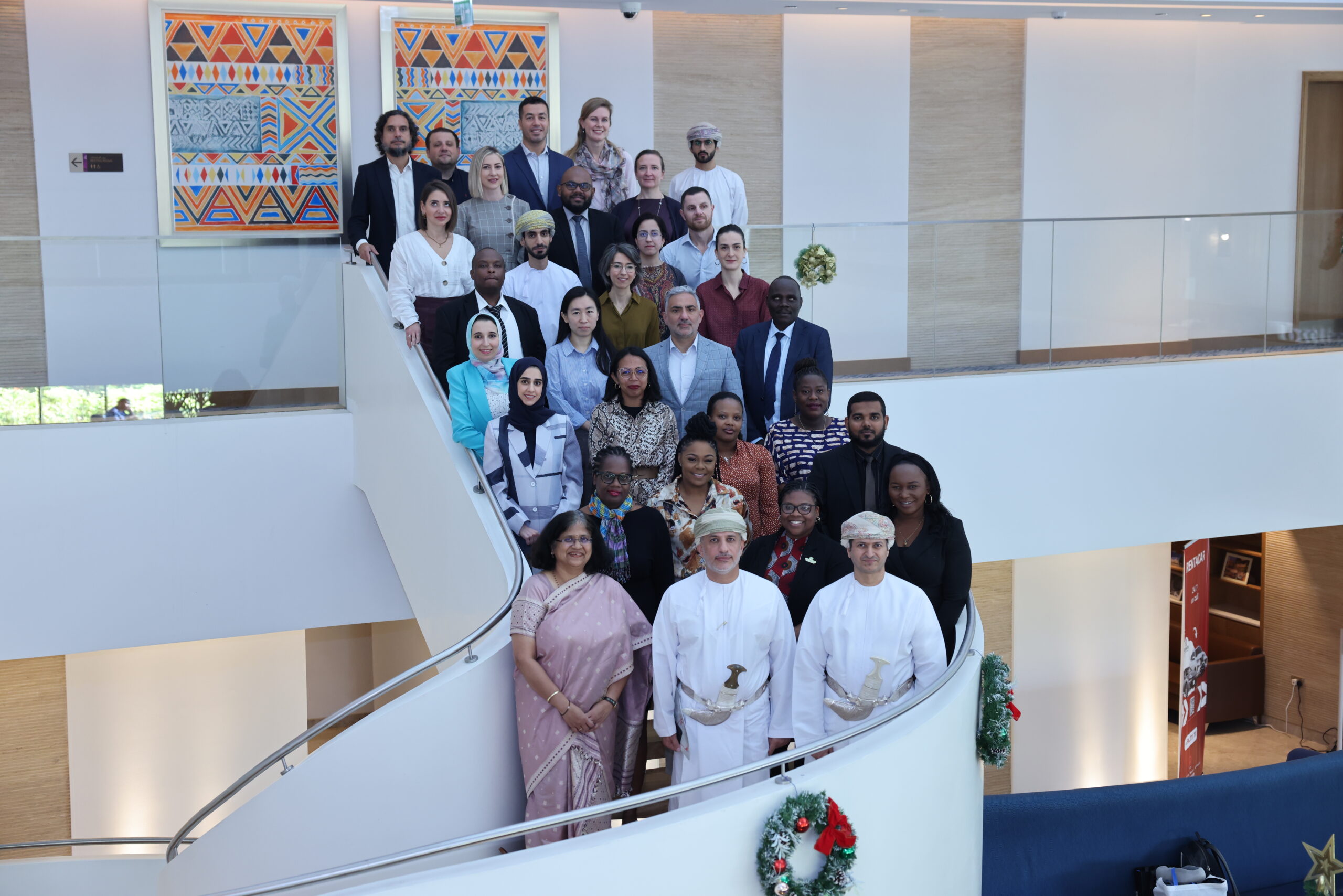On July 15, 2024, INTOSAI bodies and stakeholders convened at the INTOSAI Side Event at the High-Level Political Forum on Sustainable Development (HLPF) 2024. The event, titled “Auditing for Effective, Accountable, and Inclusive Public Institutions for Implementing Sustainable Development Goals,” was co-organized by the INTOSAI General Secretariat, the INTOSAI Development Initiative (IDI), the INTOSAI Working Group on Environmental Auditing (WGEA), SAI Brazil, and the Permanent Mission of Brazil to the United Nations (UN), in collaboration with the UN Department of Economic and Social Affairs (UN DESA). The Consulate General of Brazil in New York hosted the event.
Below are the key highlights of the event, including links to the recordings of each segment.
Opening Remarks
The opening remarks were delivered by Ambassador Sergio França Danese, Permanent Representative of Brazil to the United Nations in New York; Minister Walton Alencar Rodrigues, of the Federal Court of Accounts of Brazil, representing the INTOSAI Chair; and Dr. Ronald Roedl, Director General of the Austrian Court of Audit, representing the INTOSAI Secretary General. They emphasized the pivotal role of Supreme Audit Institutions (SAIs) in fostering effective, accountable, and inclusive public institutions crucial for the implementations of the Sustainable Development Goals (SDGs).
 |
It is more than evident that the work of Supreme Audit Institutions directly and indirectly contributes to the SDGs, being, however, particularly key to many targets of SDG 16.
Ambassador Sergio França Danese
|
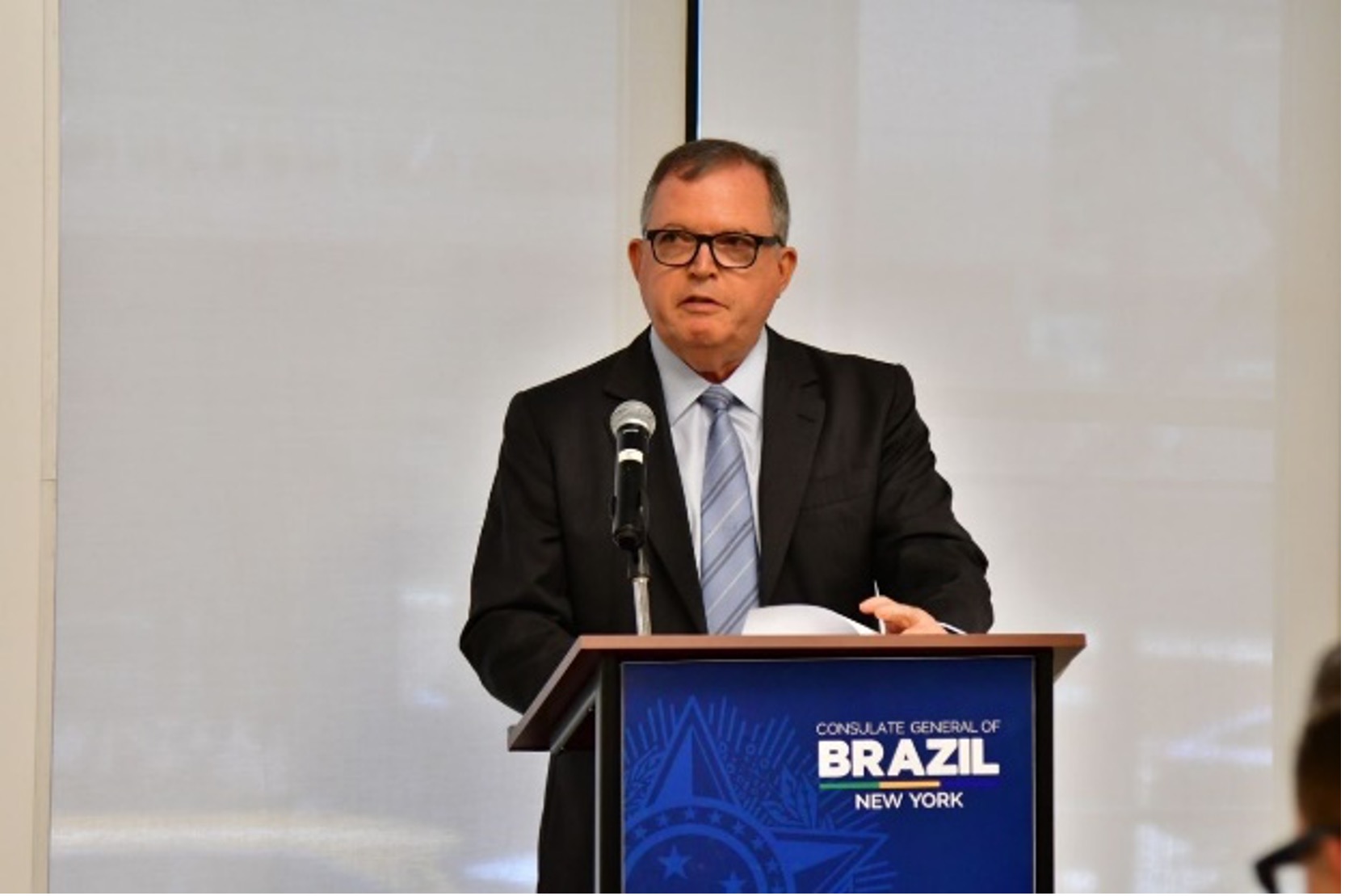 |
Through independent audits, we significantly contribute to identifying gaps, promoting the improvement, and ensuring that sustainable development efforts are conducted effectively and efficiently.
Minister Walton Alencar Rodrigues (SAI Brazil) |
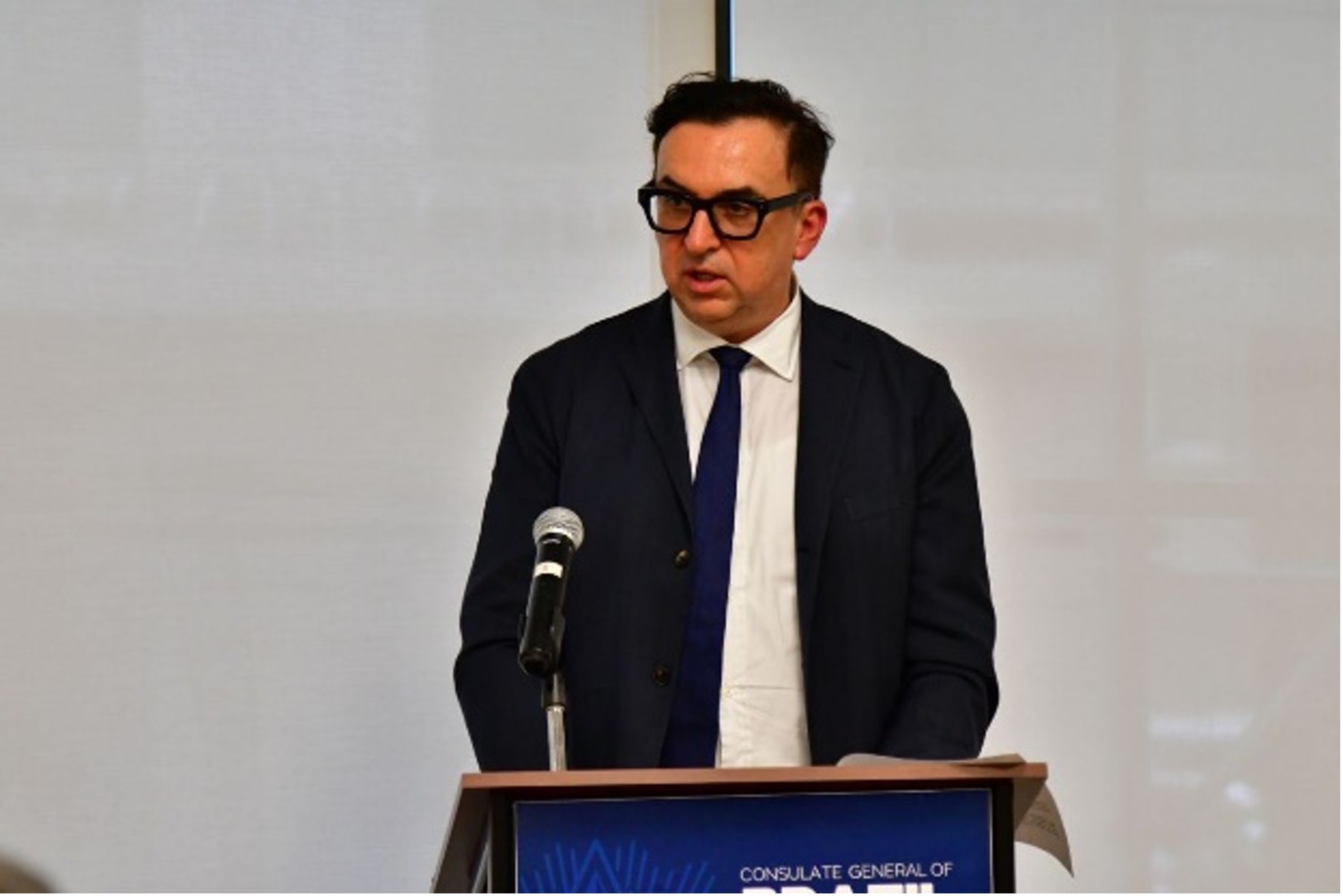 |
The impact of SDG audits is a key factor in ensuring the full implementation of the SDGs.
Dr. Ronald Roedl (SAI Austria) |
Launch of ISAM 2024 and a Fireside Chat
IDI launched an updated version of IDI’s SDGs Audit Model (ISAM) during the event. Speaking at a fireside conversation on this occasion, Ms. Archana Shirsat, Deputy Director General at IDI, and Ms. Aránzazu Guillán Montero, Senior Governance and Public Administration Officer of UN DESA, shared reflections on the journey of SAIs in auditing SDGs right since 2016, when the 2030 Agenda for Sustainable Development came into effect. This journey includes the audits of preparedness for implementation of the SDGs, IDI’s cooperative audits of SDG implementation that piloted the previous version of ISAM, and multi-stakeholder engagement at the global and national levels. As noted by Archana, SAIs benefited from this, as “they started looking at new methodologies, new guidance, look at the national outcome, look across the government”. These methodologies and tools were not only useful for SAIs, “but also for many other stakeholders who have an interest and are committed also to evaluate and to assess the implementation of the SDGs,” complemented Aránzazu.
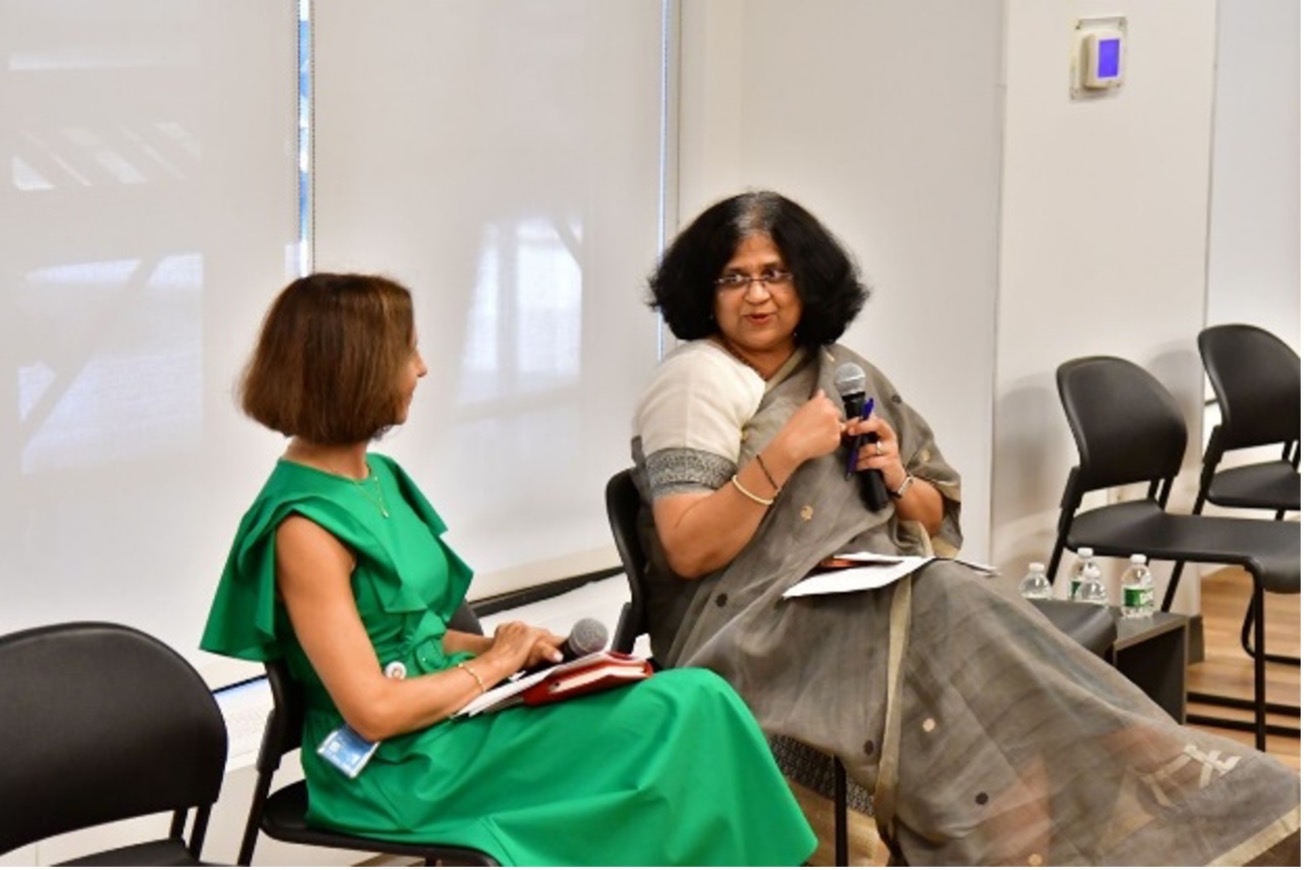 |
If SAIs and SDG audits are to have audit impact, they can’t do it alone. So it’s really a shared responsibility. We depend on the entire ecosystem, and we really count on you working together with us as a SAI community who make this happen.
Archana Shirsat (IDI) |
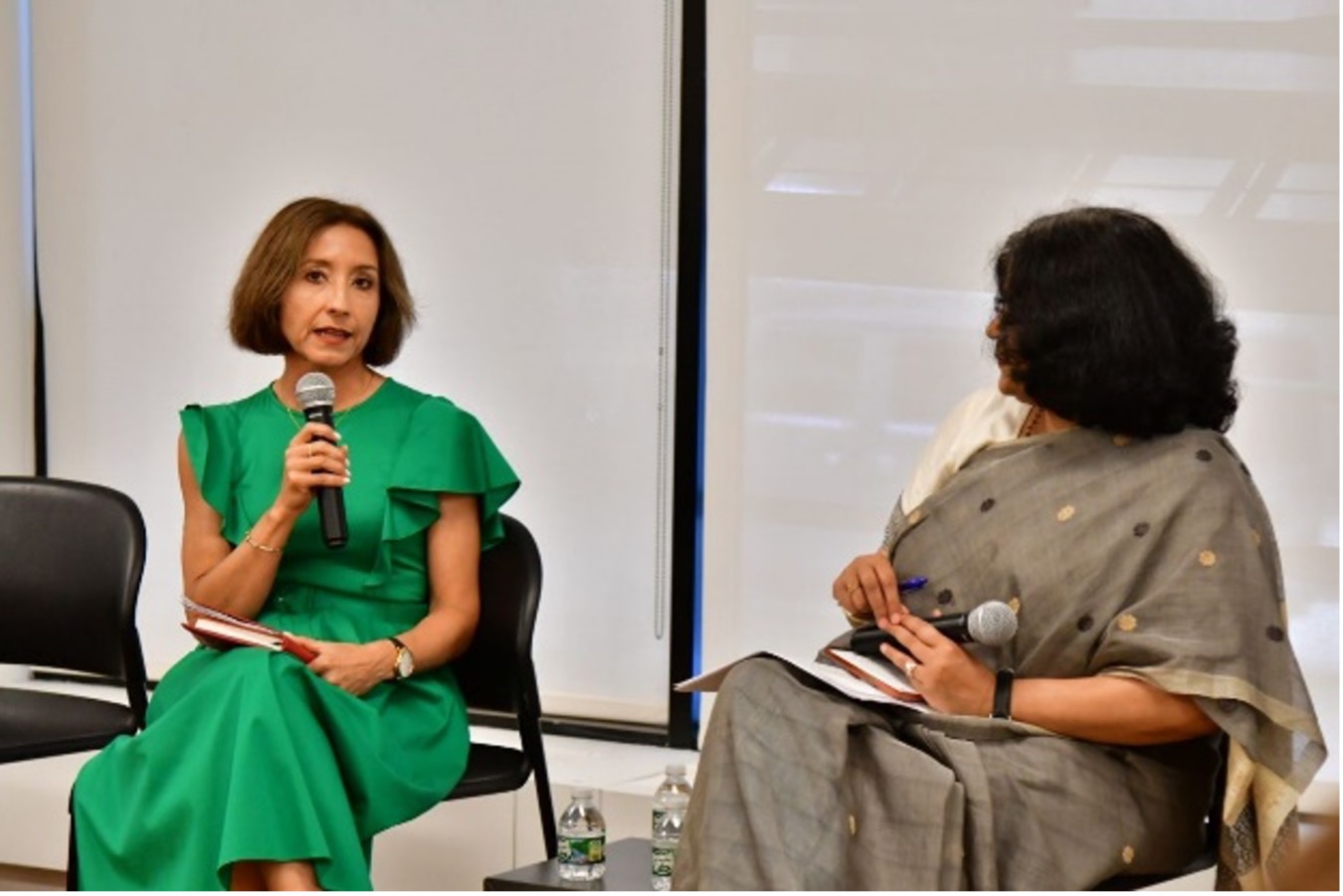 |
All this work really has contributed not only to have Supreme Audit Institutions in a better position to assess the performance of programs and policies to implement the SDGs, but also has strengthened the follow up and review of the SDGs at the national level, providing inputs not only for SAIs, but also other stakeholders like parliaments and civil society.
Aránzazu Guillán Montero (UN DESA) |
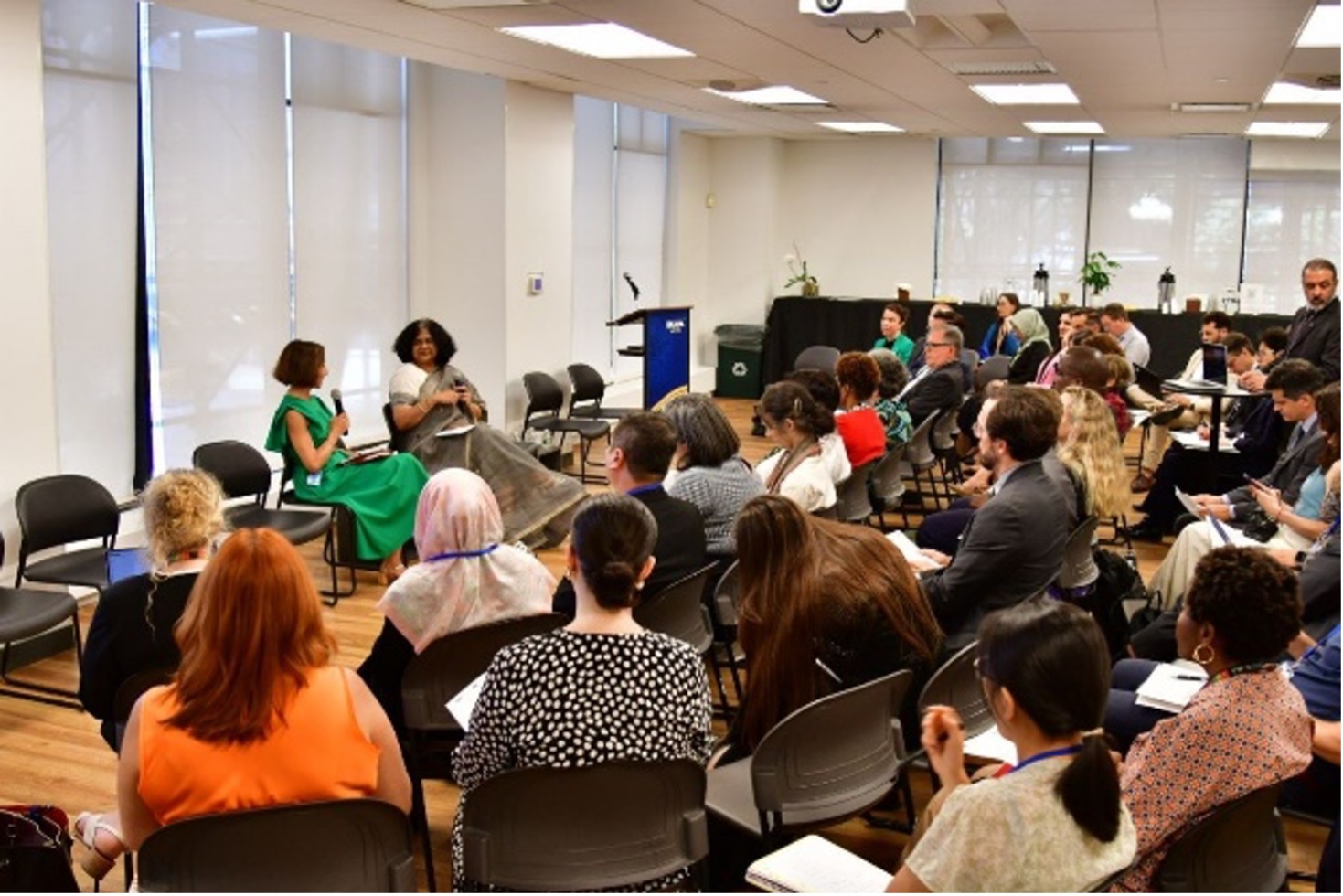
SAI leaders and key stakeholders discuss auditing climate action, eradicating poverty and collaboration
Following the announcement of IDI’s new ISAM model, international experts convened for a panel discussion, divided into three segments.
In the first segment, related to Auditing Climate Action in Small Island Developing States (SIDS), Mrs. Pamela Monroe Ellis, Auditor General of SAI Jamaica and Secretary-General of the Caribbean Association of Supreme Audit Institutions (CAROSAI), discussed the challenges faced by Jamaica and other SIDS, related both to climate change effects, such as hurricanes, sea level rise and coastal erosion. Additionally, she mentioned challenges like a lack of institutional resources and technical expertise, and data being dispersed across different ministries. Mr. Alfredo Gomez, Director of the Natural Resources and Environment team at the US Government Accountability Office (SAI USA), highlighted some of the global projects under INTOSAI WGEA, like the ClimateScanner and the Global Cooperative Audit on Climate Change Adaptation Actions (CCAA), which bring SAIs and stakeholders together to address governmental efforts to combat climate change. He also mentioned the integration of indigenous knowledge into climate change audits as debated in the 2024 WGEA Assembly.
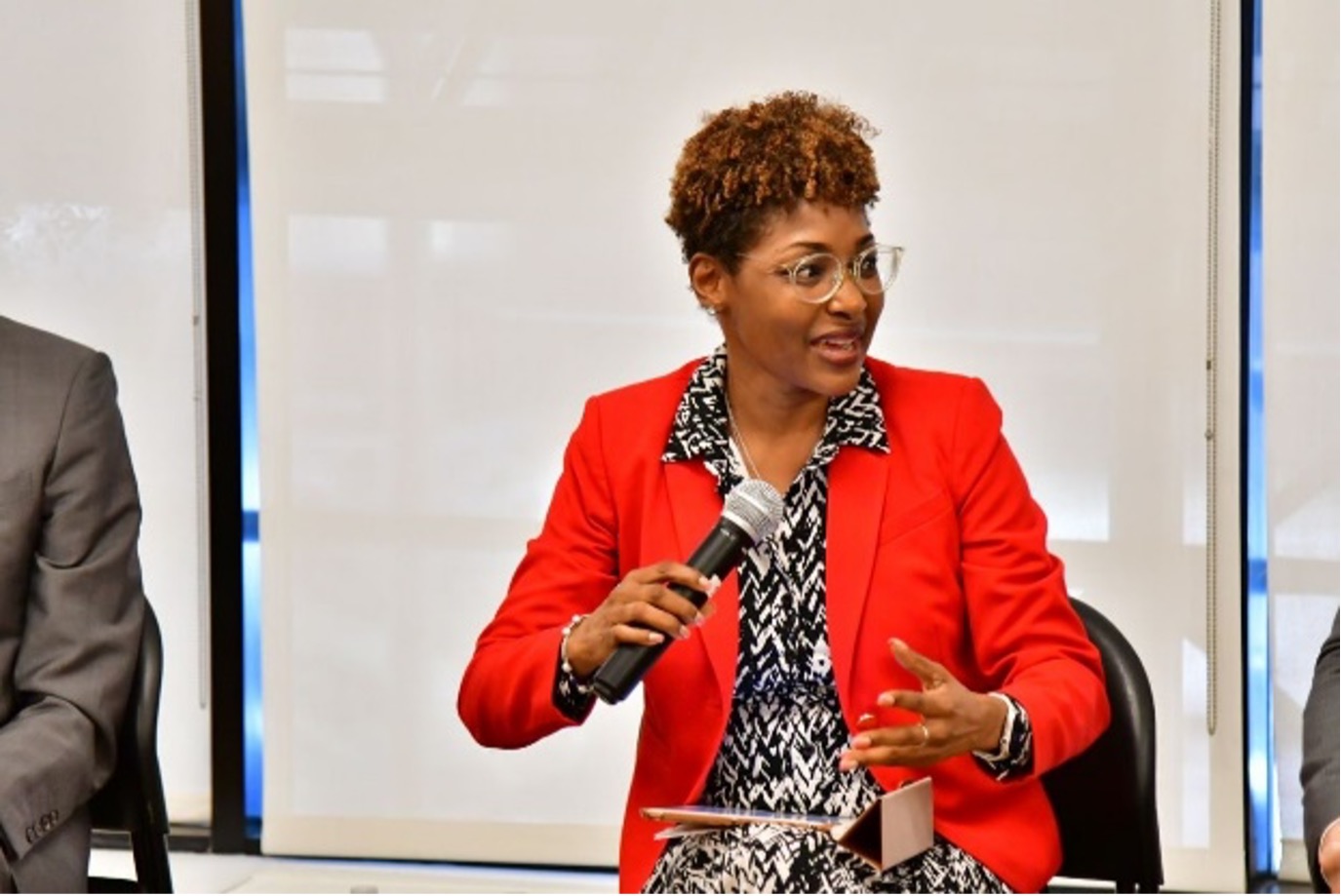 |
The countries that contribute less to the climate change are affected most […] As islands, we are somewhat isolated, but because we have the least resources to fight back. Least resources financially, least resources technically. So we’re exposed.
Mrs. Pamela Monroe Ellis (SAI Jamaica) |
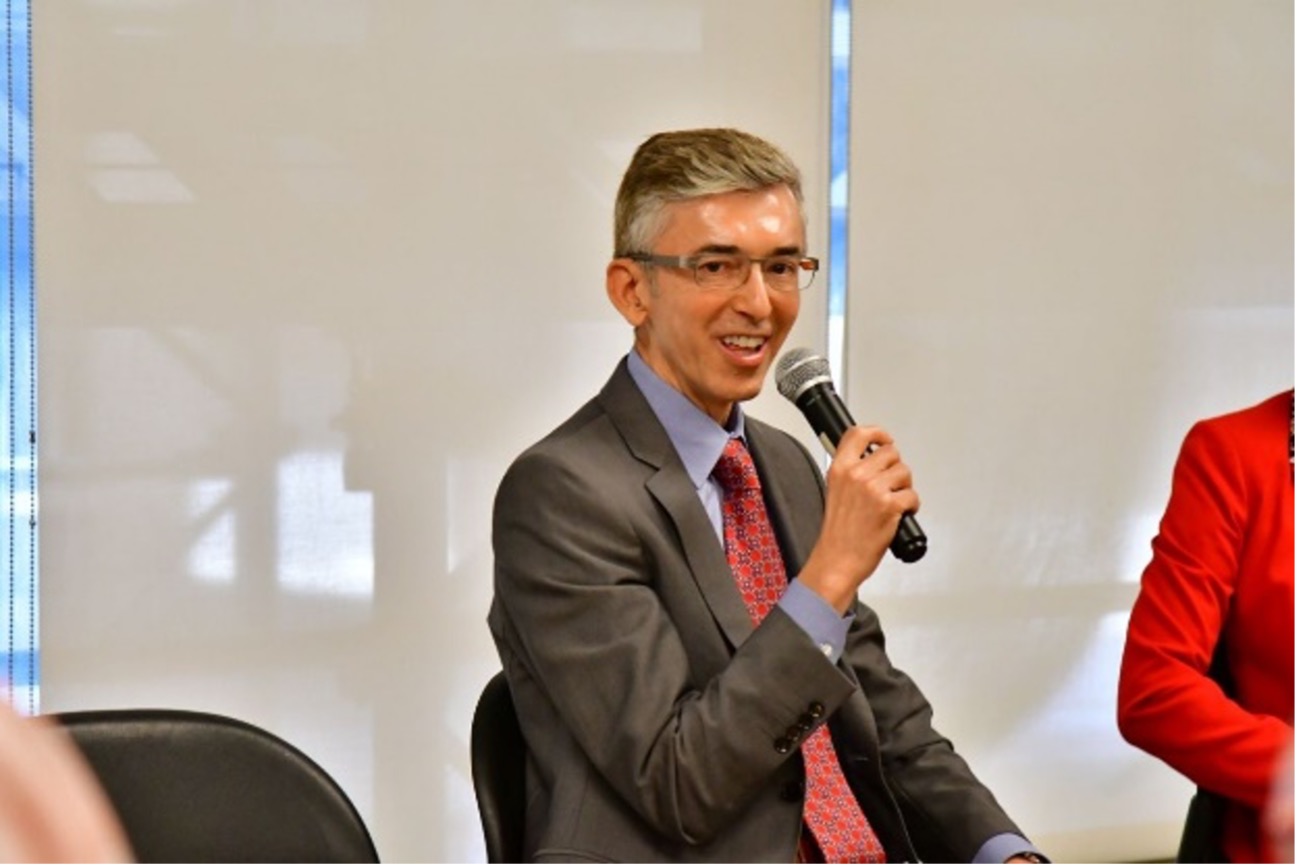 |
Indigenous knowledge can be a good source of information for auditors, for example, in understanding sustainable use of resources and taking into account intergenerational perspectives. So there is a role for SAIs to play in this area.
Mr. Alfredo Gomez (SAI USA) |
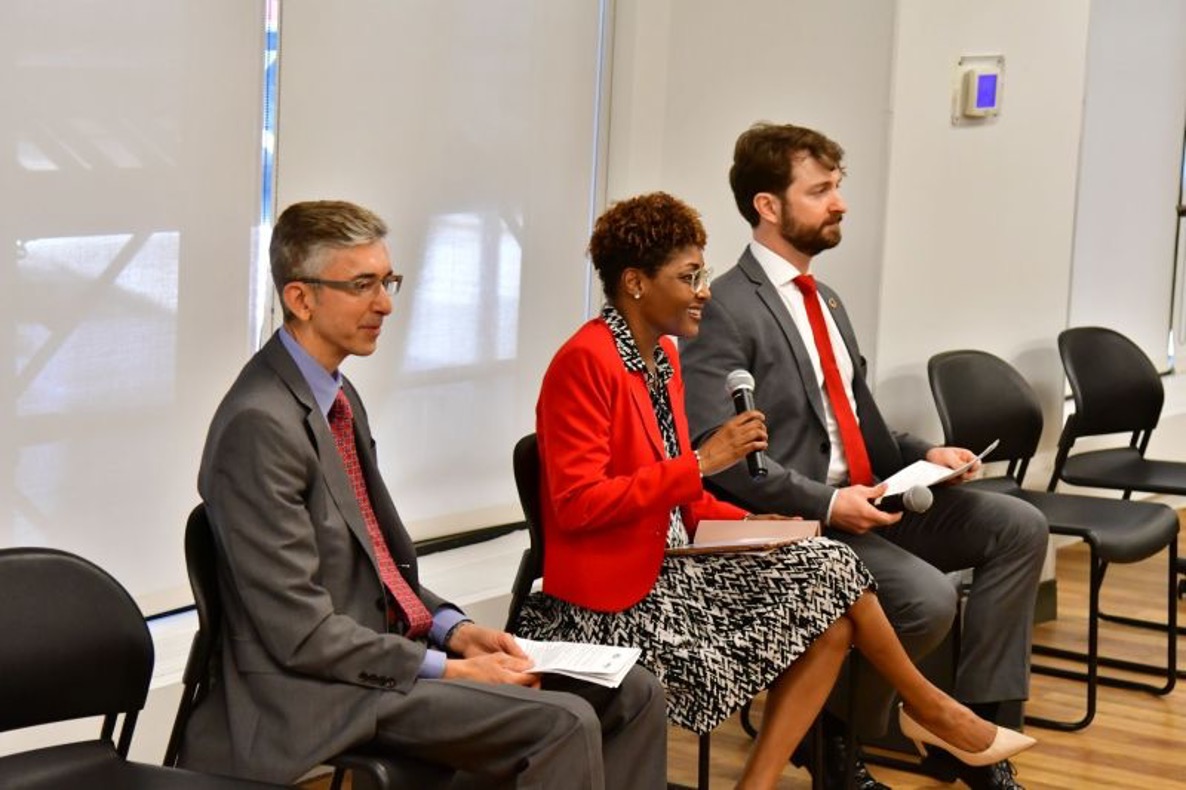
The second segment of the panel was dedicated to poverty elimination (SDG 1). Dr. Rebecca Vassallo, Liaison Officer for International Affairs at SAI Malta, discussed how SAIs can strengthen public institutions through performance audits by addressing institutional shortcomings related to funding, data, and coordination mechanisms. She cited SAI Malta’s audit, which identified issues like siloed mentalities, resource competition, and fragmentation in services provision, leading to inefficiencies and confusion among service users. Dr. Sabina Alkire, Professor at the University of Oxford, presented the research on multidimensional poverty conducted by the Oxford Poverty and Human Development Initiative (OPHI). She explained how Multidimensional Poverty Indexes (MPIs) measure poverty across various dimensions of deprivation and inform decisions related to budgeting, targeting, and policy coordination.
 |
SAIs can help strengthen public institutions through performance audits of SDG implementation, [which] can highlight institutional shortcomings and recommend ways of mitigating and addressing such shortcomings.
Dr. Rebecca Vassallo (SAI Malta) |
 |
Multidimensional poverty means that you identify a set of indicators that are relevant in each country, and then one by one, you audit who has a deprivation in each household. […] Within the countries, the MPI [Multidimensional Poverty Index] is used for budgeting, to target populations where there are not universal social services, either by geography or at the household level. It’s also used for policy coordination between different sectors, led by the President or head of State, and between levels of government.
Dr. Sabina Alkire (The University of Oxford) |
In the third segment, related to SAIs and stakeholder collaboration for core processes of SDG implementation, Mr. Bahtiar Arif, Secretary General of SAI Indonesia, discussed the challenges in aligning the government’s midterm development plan with the annual budget and ensuring policy coherence. He outlined SAI Indonesia’s focus on integrating national and subnational plans and collaborating with stakeholders over the next six years of the 2030 Agenda. Ms. Petra Bayr, a Member of the Austrian National Council, highlighted how SAI Austria assists Parliament in holding the government accountable by providing valuable information and recommendations. She also suggested improving the use of audit reports by Parliament. Ms. Claire Schouten, Senior Program Officer at the International Budget Partnership (IBP), introduced the handbook “Strengthening Budget Credibility through External Audits,” developed by IBP in collaboration with several SAIs and UN DESA, aiming to provide guidance for auditors on assessing governments’ abilities to meet their revenue expenditure targets. She also stressed the invaluable inputs that civil society can provide to SAIs throughout the audit process, such as in the planning and follow-up process.
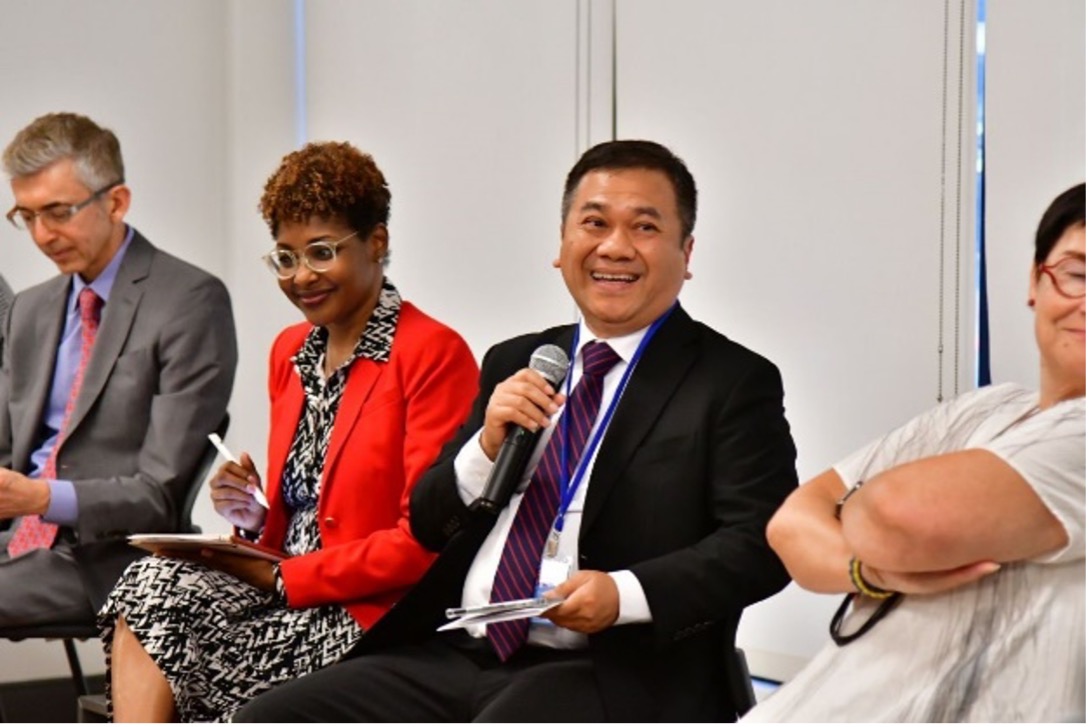 |
We will focus on the government plan to achieving SDGs, for example by integrating national plan and subnational plans as well as following up the recommendation of our audit on SDG implementation, especially under poverty and social integration, health system, as well as the green economy.
Mr. Bahtiar Arif (SAI Indonesia) |
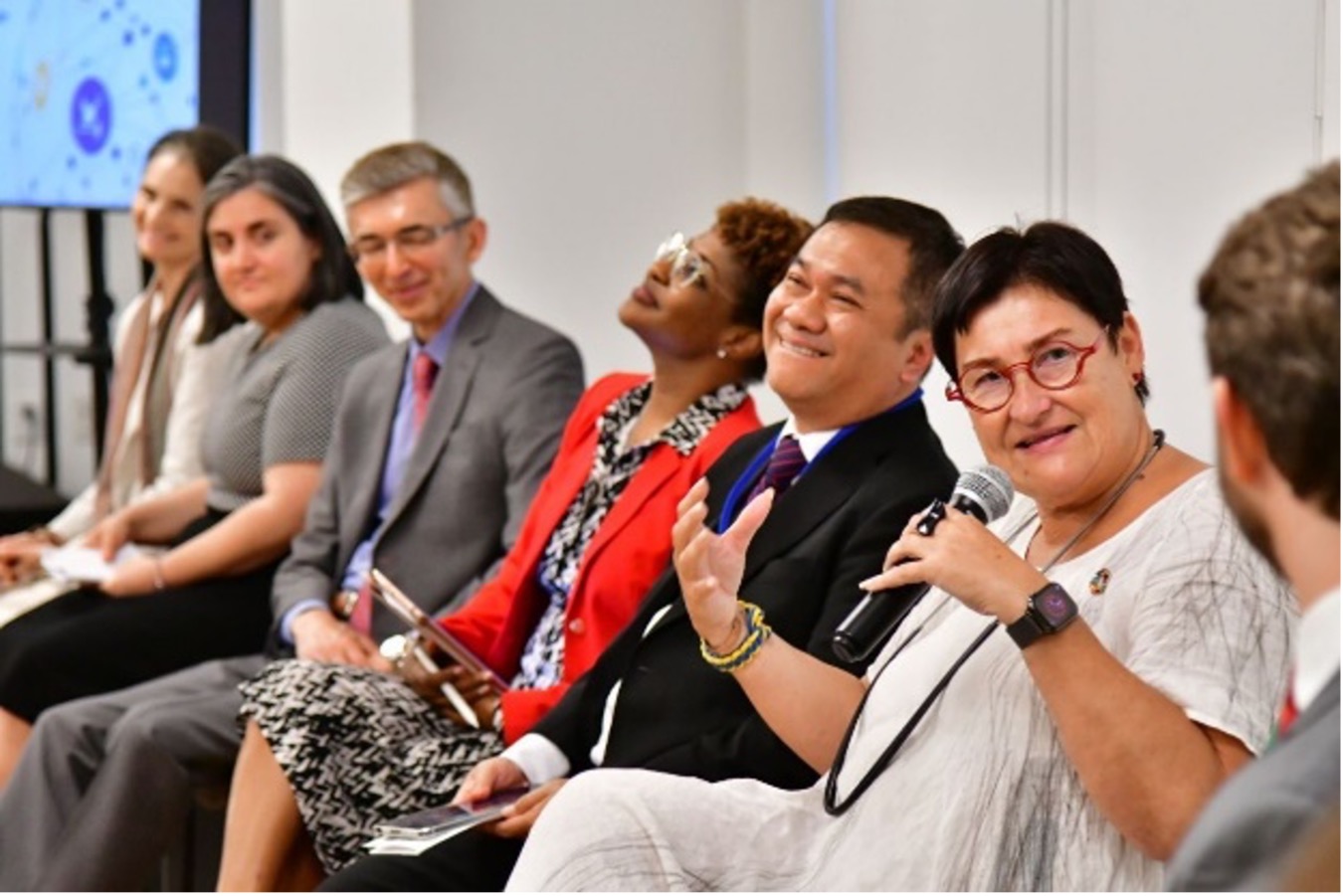 |
It is key for us to get information from the SAI to really know whether the government is doing a good job because they are following up with that.
Ms. Petra Bayr (Austrian National Council) |
 |
How can we bring strategic processes to SAIs, strengthen strategic communication, really thinking about audit impact, not just in terms of savings, but ultimately in terms of impact for the most vulnerable communities and how we can serve them.
Ms. Claire Schouten (IBP) |
Photos Attribution
Source: INTOSAI Journal of Government Auditing
Initiative
Topics
Recent News
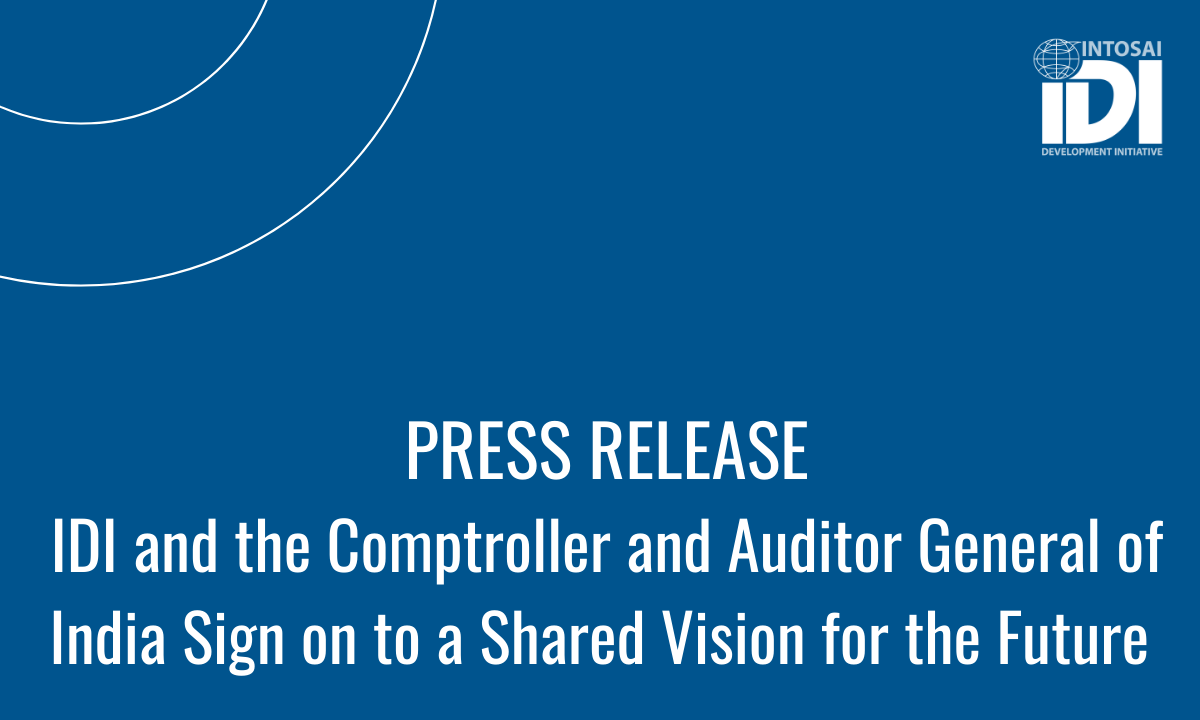
IDI and the Comptroller and Auditor General of India Sign on to a Shared Vision for the Future
Read more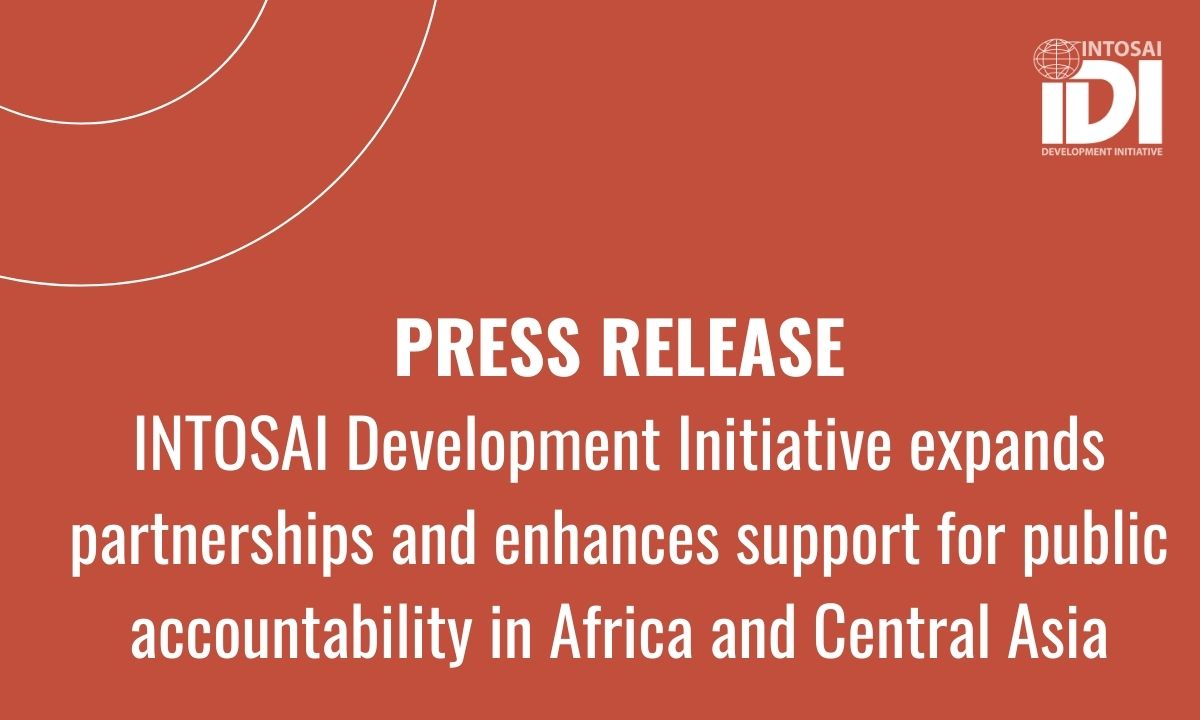
IDI expands partnerships and enhances support for public accountability in Africa and Central Asia
Read more